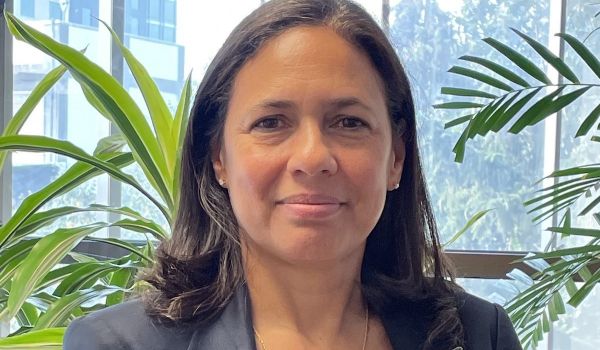EDITOR’S NOTE: This sponsored content is paid for by the Center for Cultural Innovation (CCI), as part of its AmbitioUS initiative. This series explores how alternative economic models can empower artists and culture bearers, with an eye toward financial freedom and long-term sustainability.
Sabrina Jones found the inspiration for her skincare line, SJC Body Love, while she was pregnant. The Minneapolis-based mom-to-be wanted to have healthier, more eco-friendly solutions, so she started researching essential oils and coming up with formulas for her own personal use. She was working a corporate job at the time, but she launched a small product line as a side hustle in 2015.
“I started to see that business was growing,” Jones says. She didn’t feel like she was prepared for the growth. “There were a lot of things that I needed to learn that I just wasn’t expecting because it was really a hobby. And then I started seeing the potential of being in business for myself.”
That led her to a conference hosted by an organization called ConnectUP that is focused on connecting Black women entrepreneurs to investors, a broad suite of wraparound services and other resources within the business ecosystem to strengthen relationships and opportunities for success. Jones was able to build out her website, hire three employees and access financing through a “character-based” lending program that looked beyond an applicant’s credit score and existing collateral.
That lending program was part of a collaboration between Community Credit Lab and Common Future, two nonprofits that focus on equitable access for diverse entrepreneurs as an effort to close the racial wealth gap. These organizations, which recently announced that they would be merging, raised $800,000 to offer in character-based loans through three partner organizations: ConnectUP, Native Women Lead and MORTAR.
“I think what really is the operative term is the by, for, and with piece,” says Eric Horvath, the director of capital strategies for Common Future. “I think a lot of the way that we approach things is through co-design and partnership and taking an inclusive and equitable lens in terms of how we structure things.”
The character-based lending initiative operates very differently than most lending programs. The model was designed in response to structural patterns of racial discrimination uncovered in traditional capital systems. Rather than running entrepreneurs’ data through an algorithm, Common Future put the power in the hands of community organizations to identify loan recipients and determine how much money they would really need.
“Our thesis was that the folks that have the longest established relationships in their community with their entrepreneurial ecosystem,” Horvath says. “They will know best as to who will be investible, who will be creditworthy.”

Left to right: Y. Elaine Rasmussen, founder of ConnectUP!; Ixchel McKinnie, enterprise development officer at ConnectUP!; Junita Flowers, Junita's Jar; Bella Lam, Coconut Whisk; Martena Jones, Fabulous Diva Boutique' Melanie Lewis, Perfect Piece Sweets; Sabrina Jones, SJC Body Love
According to Ixchel McKinnie, the chief enterprise officer at ConnectUP, they start by matching the entrepreneur with a business consultant. “They spend 60 days working with them, preparing to receive capital,” McKinnie says, “Part of that process is to look at the financials, look at their needs, and determine where they would allocate that capital.”
While Common Future gave organizations the power to manage the funds, they took care of all of the fundraising.
“They did all of the difficult conversations that, quite frankly, we’re tired of having around why this is important and why this is needed,” says Y. Elaine Rasmussen, the CEO and founder of ConnectUP. “It was really great to have that collaboration in that partnership.”
For the first round of funding, ConnectUP deployed $200,000 to five businesses owned by Black women. Their main focus is on companies that are second-stage startups that are at least two years old, although the business doesn’t have to be profitable. They also want to make sure that the business owners are paying themselves and planning to hire at least one employee.
“We feel like that allows us to make a difference in that our capital is making a difference in the community,” McKinnie says. “So we’re starting to build some wealth and some financial security there.”
They also do not fund tech companies or participate in the venture capital space.
“There’s nothing wrong with those high-risk, high-reward tech companies and biotech companies, they have their place,” McKinnie says. “And we also need to make sure that in order to make the impact that we say we want to have, especially in the BIPOC community post-George Floyd, the money really does need to go to these businesses that will add employees, remain in the community and invest in the community.”
After a successful first trial, Common Future and Community Credit Lab intend to carry on the project with more infrastructure as one company.
For Jones, the funding has made a huge impact. She has been able to bring on some staff to help her with business operations and also hire a web developer to bring her online presence to life. She is also in talks with some major retailers thanks to supplier diversity conferences that the ConnectUP! Institute connected her to.
“[ConnectUP!] has invested so much with the mentoring and with the resources — and not just the capital, but by being able to educate on surviving everything,” Jones says.

Nia Springer-Norris is a Chicago-based solutions and culture journalist who contributes to Next City and Kirkus Reviews. Her work has also been featured in Ms., Romper and Parents.com.
















